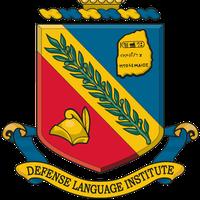O Brasil na Guerra Fria
Ao término da Segunda Guerra Mundial (1945), iniciou-se a Guerra Fria, uma disputa pela hegemonia mundial entre Estados Unidos e União das Repúblicas Socialistas Soviéticas. Foi uma intensa guerra ideológica, econômica, diplomática e tecnológica pela conquista de zonas de influência, que estabeleceu a divisão do mundo em dois blocos, com sistemas econômicos, políticos e ideológicos divergentes: o chamado bloco capitalista, liderado pelos Estados Unidos, e o bloco comunista, liderado pela União Soviética. Essa disputa influenciou diretamente nas políticas de vários países, inclusive do Brasil.
Após a Segunda Guerra Mundial, o Brasil integrou o bloco capitalista, no entanto, a partir de 1961 o presidente João Goulart (Jango) desenvolveu uma política externa independente do apoio das superpotências da Guerra Fria. Jango fortaleceu os movimentos sindicais, estudantis, camponeses e populares. Além desses fatos, o então presidente promoveu uma aproximação política entre o Brasil e a União Soviética, o que desencadeou atritos com as lideranças políticas, econômicas e militares do Brasil.
Em fevereiro de 1964, Jango anunciou as reformas de base, que consistia num conjunto de reformas sociais que incluía a reforma agrária. Sua política preocupou bastante a classe burguesa do Brasil e os investidores estadunidenses, esse clima era propício para um golpe de estado. Em 31 de março de 1964, o presidente foi deposto por um golpe militar que teve apoio decisivo da elite conservadora brasileira e da Agência de Inteligência dos Estados Unidos (CIA).
Instalou-se no Brasil uma ditadura militar que governou o país por duas décadas (1964 – 1985), esse período se caracterizou pela censura à imprensa, movimentos culturais e sociais, a repressão aos opositores do regime militar, institucionalização da tortura, entre outros fatores.
Por Wagner de Cerqueira e Francisco
Graduado em Geografia
Equipe Brasil Escola

